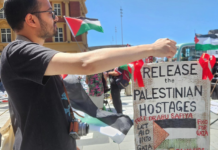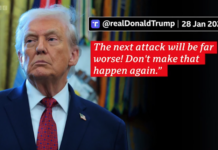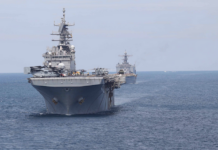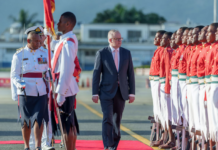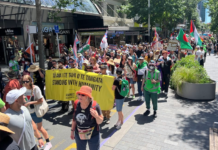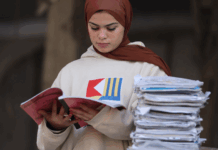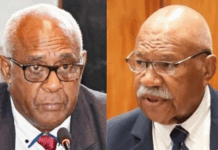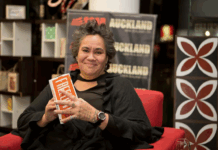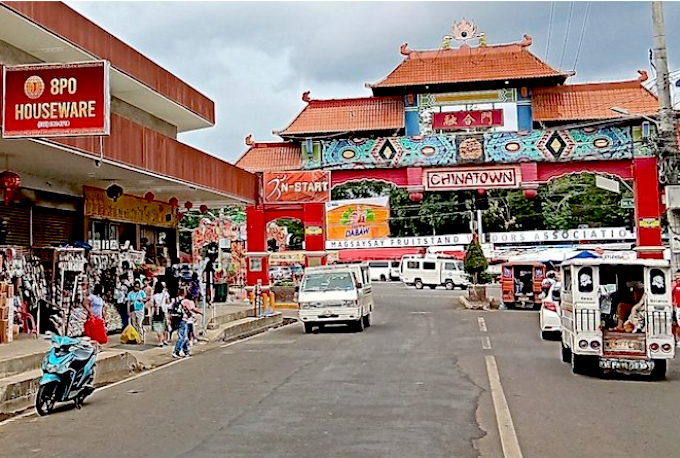
By Kalinga Seneviratne in Davao, Philippines
After being elected to the presidency in a landslide vote in June 2016, Philippines President Rodrigo Duterte visited China in October and declared that his country was “realigning” its foreign policy to move closer to China.
He was accompanied by 400 Filipino business executives and returned home with Chinese pledges of investments and loans worth $24 billion. One of those investments was to build a 1300km railway across the southern Mindanao Island with Chinese loans and technology.
People on this long-neglected island eagerly waited for the railway, as Mindanao had never had a rail network.
It would have given farmers an alternative way to transport their produce to markets and boosted tourism to the scenic mountainous island.
The first stage of the project — a 103 km railway linking Tagum City to Digos City through Davao City — was supposed to be constructed by the second quarter of 2022. But this never materialised, and when Duterte left office in June 2022, the negotiations over the project’s funding were still ongoing.
Building a railway across Mindanao has been a promise of successive presidents for almost 90 years, but no foreign donors have made the investments until the Chinese showed interest.
On 28 June 2017, the National Economic and Development Authority (NEDA) approved the pesos 35.26-billion Mindanao Railway Project (MRP) Phase 1 Tagum-Davao-Digos Segment. Transport Undersecretary Rails Cesar Chavez said the construction would begin by the second quarter of 2018.
“During Duterte’s time, he was leaning towards China, but now Marcos is leaning towards the US,” noted Councillor Pilar Caneda Braga of the Davao City Council in an interview with IDN. “All projects (with China) that have not taken off until now are cancelled”.
While emphasising that the railway project is a national issue and not one the council should comment on, she did indicate that the railway was a welcome project for the city of over 1.6 million people.
“During Duterte’s time, there were problems with loans and borrowings. It (negotiations) fizzled out,” she said.
Reshaping foreign policy
Duterte’s successor, President Ferdinand Marcos Jr, is reshaping the country’s foreign policy and realigning the Philippines more closely with the US’s militaristic strategies in Asia. China has apparently lost interest in the project.
The stumbling block is believed to have been the 3 percent interest China wanted on the loan they will make available to build the railway.
In contrast, Japan announced this month that they would be lending $1 billion to the Philippines for the Metro Manila railway extension project at an interest rate of 0.1 per cent.
Department of Transport Under-Secretary Jeremy Regino said on February 24 that the Mindanao rail project had been terminated. However, he added that they had not terminated negotiations with China, which was still ongoing.
During a visit to Davao in February, President Marcos said that the Mindanao rail project has not been terminated.
He has ordered the Transport and Finance departments to look at a hybrid model that could be funded via private investments and ODA (overseas development assistance). He added that private investors could build the railway, while rolling stocks and engines could be financed via ODA or vice versa.

It is believed that the US is also considering a funding model for the railways through its ODA mechanisms, perhaps in alliance with the Asian Development Bank, Japan, and possibly South Korea.
‘Debt trap’ narrative
This would give the US enormous propaganda clout over China and help spread its China “debt trap” narrative further.
The Dutertes are believed to be unhappy with Marcos’s strong tilt towards the US, which is antagonising China.
Sebastian Duterte, the former president’s son, is Davao City Council’s mayor. He has recently made some critical comments about President Marcos’s policies.
His elder sister is Sarah Duterte, the Vice-President of the Philippines, who garnered more votes than the president in the May 2022 elections.
In July 2023, Duterte visited China in a private capacity and met with Chinese President Xi Jinping, who called upon the former president to “play an important role” in promoting ties between their countries and resolving the territorial dispute in the South China Sea (which Manila refers to as the West Philippines Sea) amid Philippine’s growing military ties with the US.
Upon his return, Duterte met Marcos to brief him on the visit.
In January 2023, President Marcos made an official visit to China and, in a joint statement issued by the two neighbours said, Xi and Marcos had an “in-depth and candid exchange of views on the situation in the South China Sea, emphasised that maritime issues do not comprise the sum-total of relations between the two countries and agreed to appropriately manage differences through peaceful means”.
Naval skirmishes
However, throughout 2023, there have been skirmishes between Chinese and Filipino naval vessels and supply ships sailing to the Spratly Islands, which the Philippines considers as their territory.
Amid this, Marcos has made a strong tilt towards the US, with the Philippine media backing his stance, which is focused on developing stronger defence ties between the two countries.
But many countries across Asia are getting worried. In November 2023, Singapore Prime Minister Lee Hsien Loong cautioned Marcos when asked about rising tensions in the South China Sea during a regional forum in Singapore.
He is reported to have asked Marcos: “Are you sure you (Filipinos) want to get into a fight where you will be the battleground?”
Councillor Braga hinted at why the Filipinos welcomed Marcos’s stance when the same question was asked of her.
“Generally, Filipinos are more inclined towards the US because many of our relatives are in the US, and we have been under American rule for several years. So, we have a better relationship with the US”, she said.
“There have been some abuses in that relationship, but then America needs the Philippines vis-à-vis China. So, America is courting the Philippines using the EDCA. It is simple as that.”
Defence cooperation
EDCA is a defence cooperation agreement that allows the US to rotate troops into the Philippines for extended stays. Still, the US is not permitted to establish any permanent military bases.
The agreement was signed in April 2014, coinciding with US President Baraka Obama’s visit to Manila, where he promoted his “pivot to Asia” strategy.
Marcos recently agreed to allow US forces to access some six bases in northern Luzon, the closest point to Taiwan. China has threatened to mount pre-emptive strikes on these bases if provoked.
Earlier this month, US Secretary of State Anthony Blinken visited Manila for the second time in two years. China’s Global Times described the visit as a move by Washington to create an AUKUS-like clique in Asia aimed at China in the South China Sea.
It said: “Blinken’s visit is seen by Chinese observers as partly to incite the Philippines to continue its provocations in the South China Sea and partly to pave the way for a summit of the US, Japan and the Philippines that is scheduled for April”.
Manila’s waltzing with Washington is raising eyebrows in Southeast Asia, which needs a peaceful environment to prosper.
During a visit to Australia to attend the ASEAN-Australia forum to mark 50 years of relations, Marcos made a passionate speech to the Australian Parliament seeking Canberra’s support — a staunch US ally — for his battle with China.
But, Malaysian Prime Minister Anwar Ibrahim, speaking during a joint press conference at the forum with the Australian Prime Minister Anthony Albanese, said: “While we remain … an important friend to the United States and Europe and here in Australia, they should not preclude us from being friendly to one of our important neighbours, precisely China.”
He added: “if they have problems with China, they should not impose it upon us. We do not have a problem with China”.
Kalinga Seneviratne is a correspondent for IDN is the flagship agency of the nonprofit International Press Syndicate. The article is published with permission.


